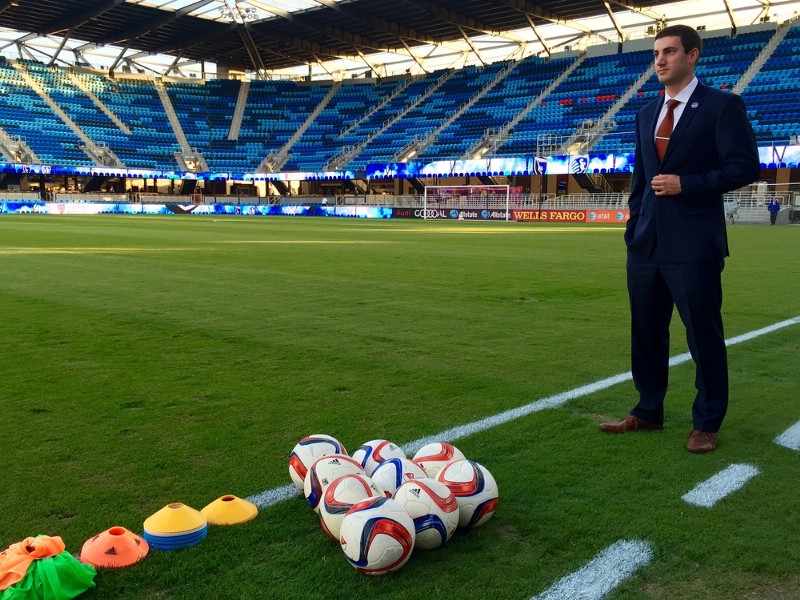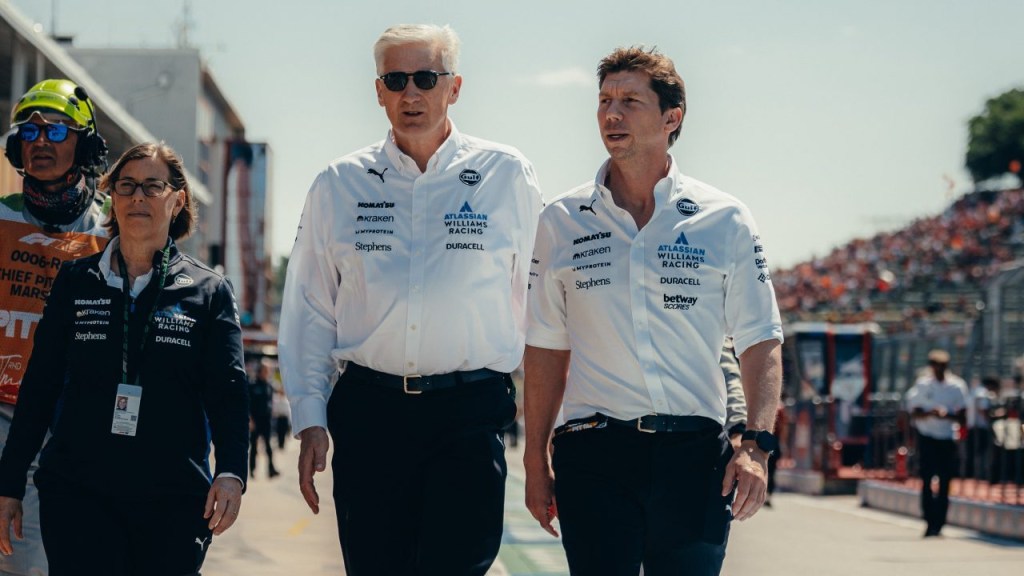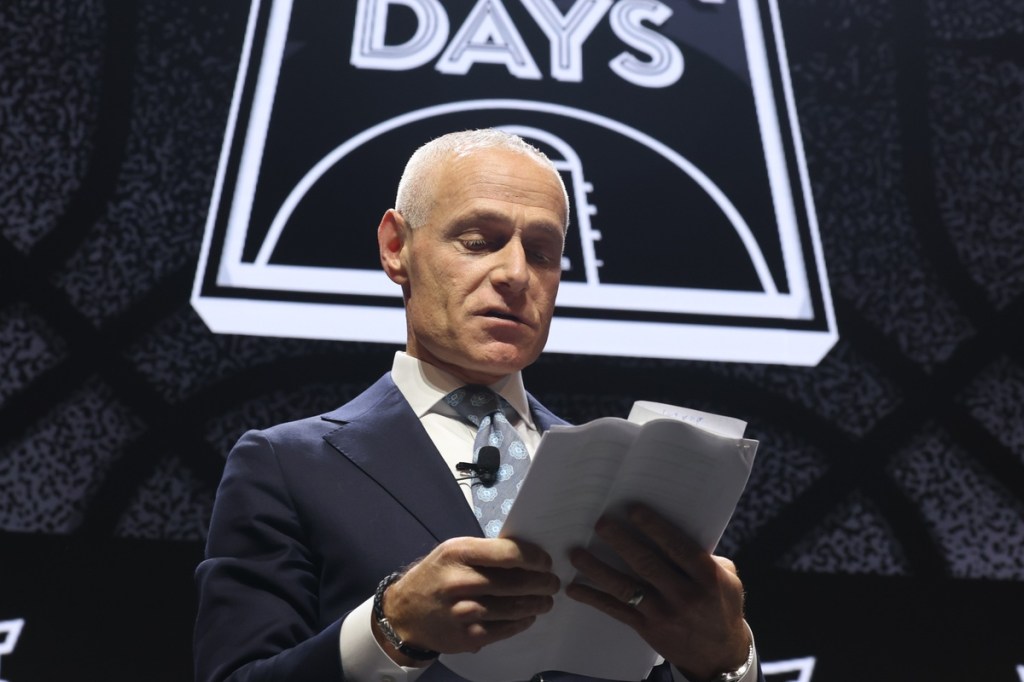By: Travis Gorsch, @tgorsch3

Front Office Sports is proud to have sat down with Jake Pisani, Senior Coordinator of Media Relations for the San Jose Earthquakes. Jake was gracious enough to offer up his time to talk about his experience throughout the Bay Area in the sports industry and how to leverage your network. He talks about the importance of working hard, being patient and taking advantage of opportunities when they arise. Jake has experience in many different sports both professionally and collegiately.
You received your Bachelors from Sonoma State University in Business, Marketing. What role does your education have in your career? With three years experience in the sports industry, when does experience become more valuable than education?
I was a business major with an emphasis in marketing. I started college as a finance major and switched to marketing my junior year. When I was in college I wanted to work in sports, but I didn’t know in what aspect. When you don’t work in a specific industry, you don’t necessarily know how things operate and what options are available to you. My dream job as a finance major would have been working in the front office as a general manager’s right-hand man, dealing with budget management and contracts.
However, I didn’t like the finance classes that I took for various reasons and didn’t see myself doing that long term. I had a marketing professor that was really into sports and sports marketing and I would actually get really excited to go to his class. That’s when I decided to make the switch to marketing.
At this point I would say job experience is more important than what I learned in school, but that’s not to discount education at all. I think there are a lot of things that I learned in college that helped me off the bat. I took a class that dealt with Photoshop and InDesign and my writing classes were also very beneficial. But as my career is going on, I’m using less of what I learned in school and more of what I’ve learned directly on the job. You can only recreate the stresses of the working world so well in a classroom setting.
Your first gig in sports was with Comcast SportsNet Bay Area (CSN) as a Public Relations/Marketing Intern. How were you able to get your foot in the door?
I was 6–8 months from graduation and knew at that point from the research that I had done that no one was going to hire me for a full-time job without internship experience and many, if not most, internships required college credit. If I graduated without any experience in sports, I thought logically that would be the end of my chances to work in the industry. So I ramped up my search for an internship. Then one day I got a random follow on Twitter from someone whose bio states they help young professionals advance in the sports industry. I sent the gentleman a message and we began talking about my career aspirations. I set up a phone call with him one day and he talked me through the do’s and don’ts in sports. He gave me help with my resume and cover letter. Some of the best advice he gave me was “Don’t highlight where you worked, highlight what you did for them.
A week or two later I found the CSN internship. After applying with my new-and-improved resume, I was contacted for an in-person interview. I was so nervous that I pulled two consecutive all-nighters studying the company and potential interview questions I could be asked. I went to the city [San Francisco] and ended up getting the job soon after. The internship was a mixture of marketing, PR, and events. I mainly wanted the position for the marketing aspect, but figured learning the other parts of the job couldn’t hurt. As the internship went along, I began finding myself more interested in the public relations assignments than anything. I was helping write press releases, copyediting, and generating ideas for the shows. I loved the marketing side, and the people that came along with it, but would be lying if I said PR didn’t attract me more.
I still make sure to keep in touch with the people that I worked with there. They were the first to give me an opportunity and I’ll always be grateful for that.
You were a communications intern with the San Francisco 49ers for just over a year and a half. How were you able to invest so much time waiting for the next opportunity to advance your career?
One thing that I always tell people that want to work in sports is to not to get too frustrated if things don’t go your way immediately. A lot of it depends purely on timing. I was there for quite a while — closing in on two years. You hear about people getting hired with other teams around the league. Naturally I would look them up on LinkedIn and it was hard when I realized I had more experience than many of them. You have to remain calm and focused and be prepared for when you get your opportunity. It’s very easy for someone to see his or her work slip if they’re not really strong willed and determined. I think that’s how people get full-time jobs in sports. They display that attitude that they’re not going to fold because a couple things don’t go their way. People either give up or can’t handle the rigors of the job, which weeds them out. Fortunately I was persistent in my pursuit.
You continued to volunteer in different capacities with the Pac-12 Conference and Foster Farms Bowl. Do you have any advice for students and young professionals about sacrificing pay for experience? How do volunteer opportunities look on a resume?
In addition to all my volunteer time, my internship with CSN was actually unpaid too, and it’s not cheap to get to and from San Francisco. I would leave Sonoma State at 5:30 a.m. in order to make it to the office by 7:30/8 because the traffic was so horrendous. Usually, I’d be among the first people in the whole company to arrive and would be an hour into my assignments before others began to trickle in. I can’t tell you how many times I sat in a pitch-black office with nothing lighting up my cubicle but the desktop monitor.
As far as unpaid work, it seems unattractive at first for obvious reasons, but it’s something you kind of have to do. The way I look at it is before someone is willing to pay you a full-time salary with benefits, they want to see you worked part-time first. And before someone hires you for a part-time assistant role, they want to see your internship and volunteer experiences. Also, when you volunteer, you never know whom you are going to meet.
Even when I was working for the 49ers, I wanted to volunteer and meet new people. I was able to do that through the college games held at Levi’s® Stadium. It helped me build my network and have some face time with professionals I ordinarily wouldn’t. When you send an email to someone you’ve never met, you don’t always hear back. If you’ve met the person and had a face-to-face conversation, they are much more likely to respond and be helpful to you. Anytime you can volunteer and get your name out there it’s never a bad thing.
The call finally came in February 2015 for a full-time position as the Senior Coordinator of Media Relations with the San Jose Earthquakes. Having formerly held an internship with the Quakes. How did this play a factor?
When I was with the 49ers, I got pulled in to my bosses office and was told my time there would be coming to a close over the next couple weeks due to the team’s two-year maximum internship policy (in order to prevent people from becoming lifetime interns). Later that same day, I found out my former boss at the Quakes had moved on to take the Director role in Chicago. The job description posted online was for a ‘Senior Manager,’ which would have clearly been a hefty leap title-wise, although not one I was afraid to tackle if need be. I decided to reach out to my old bosses’ boss anyway, who at that point was a one-man show in the club’s PR department, and expressed my interest in returning.
I had interned with the Quakes for four months in 2013, where I tried to work my tail off and leave a good impression on everyone I interacted with. At the time, there were murmurs of the department expanding to three full-time employees upon the new stadium being finished, so I always hoped it would come to fruition and I could rejoin the club. However, the circumstances were now not to work with my former manager, but to replace him.
When I heard back about an interview, I made last-minute adjustments to my resume and compiled letters of recommendations from several of the most well-known media members in the Bay Area that I was fortunate enough to work with at the 49ers. I was hired over the next couple weeks and started immediately.
You are coming up on a year with the Quakes in February. What advice do you have for making a good impression early?
The first thing that would stand out to me would be that you have to keep the same mentality that got you there in the first place. You still have to have that attitude like you haven’t accomplished what you want yet. You have to prove yourself to everyone above you and around you. You don’t want to be given an opportunity and let it slip away. I think PR is unique from a lot of other departments because it can be very rigorous, especially if you’re not used to it. My first year, I did most of the traveling and worked every home game. Including preseason (2), regular season (34) and various tournaments (4), I worked a total of 36 of the team’s 40 matches from the day I started. The average member of the front office was closer to 15–20 matches. Just part of the job.
Having worked around the Bay Area, how important is the network when moving from one team to another? Have you had a common connection that has lead to an opportunity?
When I was an intern with the Quakes in 2013, we hosted a game at Stanford Stadium. Warriors forward Harrison Barnes expressed his interest in coming to the game and we did our best to accommodate him and his guest. One of my jobs on game day was to go escort him from the parking lot to his seats and make sure he was taken care of. A member of the Warriors PR team joined Harrison at the match and I got a chance to know him. We exchanged information and told me to stay in touch.
As the 2013–14 NBA playoffs were approaching, he reached out to me looking for some game day help and asked if I was interested. Of course I accepted and drove up to Oakland for a handful of playoff games here and there. I got the opportunity to work with some media that I don’t often get to and had a chance to interact with the Warriors front office a little bit also. They brought me back for the 2014–15 playoffs as well and it was a great experience to see the team win the NBA Championship.
The moral of the story is that any little situation can have long-lasting, major implications on your career. A small assignment of escorting a few people to their seats turned into an exciting part-time job during an NBA title run.
Parting Wisdom?
I had one disadvantage that many other people may also have. I started on my journey to work in sports and knew literally no one in the industry. No one.
Many people that get internships or entry-level jobs are the people that have connections. Whether they know someone on the coaching staff or are related to a front office member, having people pulling for you on the inside can make all the difference in the world. I didn’t have that. So I had to work twice as hard. That shouldn’t discourage anyone if they truly love what they’re doing.
We would like to thank Jake for his time and insight and we wish him the best of luck in his future endeavors!
You can follow him on Twitter here or connect with him on LinkedIn here.
















